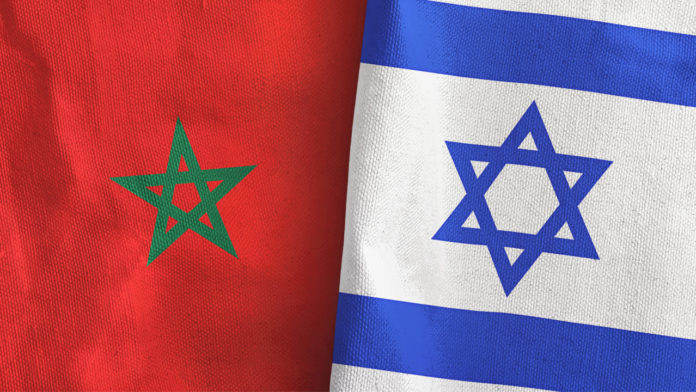A new poll has revealed that despite their government’s normalisation deal with Israel, the vast majority of Moroccans oppose any relations with Tel Aviv.
Arab Barometer asked citizens in Morocco about their views on the normalisation between their country and Israel, and 64% either strongly opposed (34%) or opposed (30%) it.
On the other hand, only 32% of Moroccans said they favour (25%) or strongly favour (7%) normalisation.
Younger, more educated, and wealthier Moroccans are more likely to support normalisation. About four-in-ten citizens ages 18-29 support normalisation, compared to three-in-ten among those 30 years or older.
Also, while 41% of wealthier citizens support normalisation, only 25% of those who cannot cover expenses say the same.
Finally, those with a higher education are more than twice as likely to support normalisation compared to those with only a high school diploma or less (53% v 25%).
While Morocco did not have formal diplomatic relations with Israel until 2020, the relationship between the two was secretly maintained after the establishment of Israel in 1948.
Subscribe to our newsletter and stay updated on the latest news and updates from around the Muslim world!
On December 10, 2020, Israel and Morocco agreed to establish diplomatic relations, with Rabat becoming the sixth Arab League member to recognise Israel and the fourth in the space of four months, along with Bahrain, the United Arab Emirates, and Sudan.
Meanwhile, the same poll found that Moroccans remain very favourable toward Turkey (76%), with educated and wealthier Moroccans having slightly more positive views towards the country.
The second most favoured regional power by Moroccans is Saudi Arabia, a traditional ally of the Kingdom. Overall, seven-in-ten citizens have favourable views towards the Saudi Kingdom, and the numbers are even higher among Moroccans aged 30 and older (72%).
Additionally, at least four-in-ten Moroccans said they want stronger relations with Turkey (43%) and Saudi Arabia (40%).
Views about Iran were much more negative. Many in Morocco accuse Iran of meddling in Moroccan affairs by providing support to the Polisario front, a separatist group fighting for the independence of Western Sahara.
When asked about the perceived threats to Morocco’s national security, about half of Moroccans (52%) say the Iranian nuclear programme poses a critical threat, a share of citizens second only to that saying the Israeli occupation of the Palestinian territories is critical to national security (57%).
In addition, four-In-ten Moroccans say that the Iranian influence in the region is a threat to national security.
Arab Barometer also asked about leaders representing each of the three poles: Turkish President Erdogan, Saudi Crown Prince bin Salman, newly appointed President of the UAE Bin Zayed, and Iranian leader Ayatollah Khamenei.
Overall, Moroccans are most favourable towards Turkish president Recep Tayyip Erdogan, whose favourability increased to 71% in 2022 from 60% in 2018.
Additionally, six-in-ten Moroccans hold favourable views towards Mohamed Bin Zayed.
And more than half of citizens in Morocco (57&) favour Mohamed Bin Salman’s policy to- ward the MENA region.
Ayatollah Khamenei came last with 23%.












![The Taliban’s Road To Success [Short Film]](https://5pillarsuk.com/wp-content/uploads/2024/11/Kabul-roadworks-thumbnail-218x150.png)










